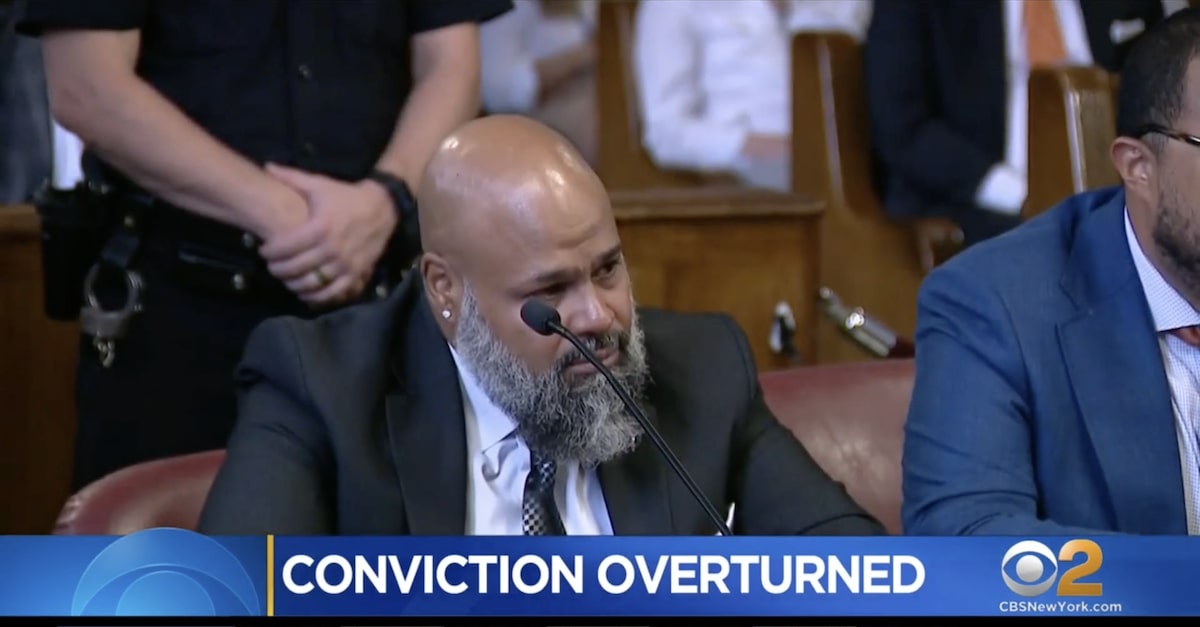
Steven Lopez, once the sixth teenager overlooked in the Central Park jogger case, had his conviction overturned on July 25, 2022.
Now joining the ranks of the men who came to be known as the Central Park Five, the sixth teenager charged with raping a jogger before pleading down to lesser charges had his conviction vacated on Monday.
Steven Lopez, now 48, was swept up with several other teenagers at the age of 15 in 1989, over a crime that would serve as a political lightning rod for decades. The case received its moniker from the horrific rape and assault of Central Park jogger Trisha Meili, who later revealed her identity in a memoir about the crime against her that shook New York City.
The attack, which left Meili’s skull fractured and left eye dislodged from its socket, stoked tabloid-driven fears of “wolf packs” of teenage boys supposedly “wilding” on the streets of Manhattan. Civil rights activist said that the dehumanizing language — aimed at Black and Latino youth — amped up pressure on authorities to announce arrests. Meili blacked out and could not remember her attackers, but the New York City Police Department extracted confessions from several teenage boys, now found to have been false.
The so-called “Central Park Five,” Antron McRay, Raymond Santana Jr., Kharey Wise, Kevin Richardson and Yusef Salaam, spent several years in prison before DNA evidence corroborated the confession of a different attacker, Matias Reyes. (Upon his release, Wise changed his first name to Korey.) Ex-Manhattan District Attorney Robert Morganthau, whose office originally brought the case, dropped it in light of the new evidence. Later dubbed the “Exonerated Five,” the quintet also reached a settlement with New York City in 2014 and become the subject of the Netflix series When They See Us.
Lopez, however, did not participate in that civil litigation and barely registered a footnote to the popular history of that case. Arrested at the age of 15, Lopez pleaded guilty to robbing a male jogger on the eve of trial and received a later 1.5-to-4.5 year sentence.
In a Monday afternoon hearing, Manhattan District Attorney Alvin Bragg (D) — who ran on a progressive prosecutors’ platform and touted the exoneration as a success of his Wrongful Convictions Unit —asked a judge to vacate Lopez’s conviction.
“Mr. Lopez was charged and pleaded guilty in the face of false statements, unreliable forensic analysis and immense external pressure,” Bragg told Chief Administrative Judge Ellen Biben. “The People’s reinvestigation was completed by our Post-Conviction Justice Unit in collaboration with Mr. Lopez and his counsel.”
In arguing for Lopez’s exoneration, Bragg called hair samples purporting to link him to the crime unreliable.
“Therefore, there remains no physical evidence connecting Mr. Lopez to the charged conduct,” the prosecutor said.
In civil litigation, some of the other teenagers recanted their testimony against Lopez, blaming the accusations on their intense interrogations as minors.
“All of the factors taken together – as set forth in our motion papers – show what the people believe are unique circumstances, combined with Mr. Lopez’s youth, made his plea involuntary – and therefore unconstitutional,” Bragg said. “A conviction based on an unconstitutional plea cannot stand.”
Some three decades later, the Central Park jogger case continues to ignite controversy and inflame culture wars. For criminal justice reformers, the case is seen as the quintessential example of prosecutorial overreach and a racially motivated rush to judgment. Former President Donald Trump, who ran advertisements in tabloids citing Meili’s assault as a reason to reinstate the death penalty in New York, continued to opine on the campaign trail that the Central Park Five were guilty, even in the face of their dropped charges and civil settlement.
Linda Fairstein, a top assistant district attorney on the case, sued Ava DuVernay, the director of When They See Us for portraying her as the “villain” of the story. That litigation remains active, with fact discovery set to conclude on Aug. 29, 2022.
(Screenshot via WCBS-TV)